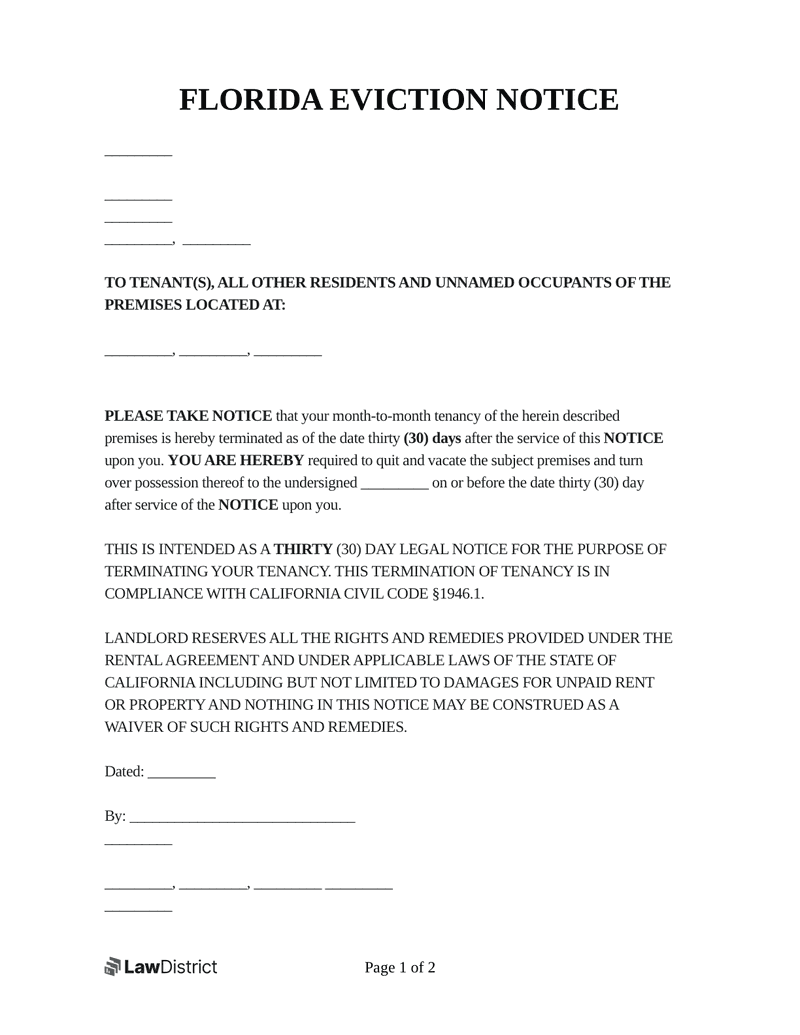There are many different types of eviction notices landlords can serve tenants when the terms of a Florida lease agreement are violated in one or more ways. Landlords must provide the correct amount of days’ notice to vacate in order to comply with the legal eviction process within the state.
3-Day Eviction Notice
If a tenant doesn’t pay rent on time they can be served with a 3-day eviction notice (§ 83.56(3)). This gives them 3 business days (not including weekends or holidays) to make the rental payment or quit.
If the letter tenant subsequently pays the owed rent then the notice will no longer be valid. However, if they don’t pay for the missed installment or fail to move out of the property the landlord can file an eviction lawsuit against them.
7-Day Eviction Notice
A 7-day eviction notice is normally used when a tenant has violated the terms of their lease (§ (83.56(2)(a), (§ 83.56(2)- b). Depending on the nature, frequency, and seriousness of the infraction the notice can either be conditional - giving the resident an opportunity to cure the problem - or unconditional where they must leave the property when the 7 day period has ended.
Additionally, a tenant can be served with an unconditional notice to quit if the landlord wishes to evict a tenant who has a week-to-week periodic tenancy. This informs the resident that their contract with the landlord will not be renewed and that they must leave within the next rental period.
15-Day Eviction Notice
When a landlord wants to end a tenancy that is paid for on a monthly basis they must provide 15 days’ notice of their intention to terminate the agreement. This is an unconditional notice with no rights to cure. However, if ending a fixed lease, this kind of letter to vacate can only be presented at the end of the contract or it will be deemed invalid.
30-Day Eviction Notice
A 30-day eviction notice is used when a landlord wants to end tenancy that is paid for on a quarterly basis. Like 15-day notices, it is essential to only provide this notice to vacate at the end of a lease agreement when terminating a fixed-term contract.
